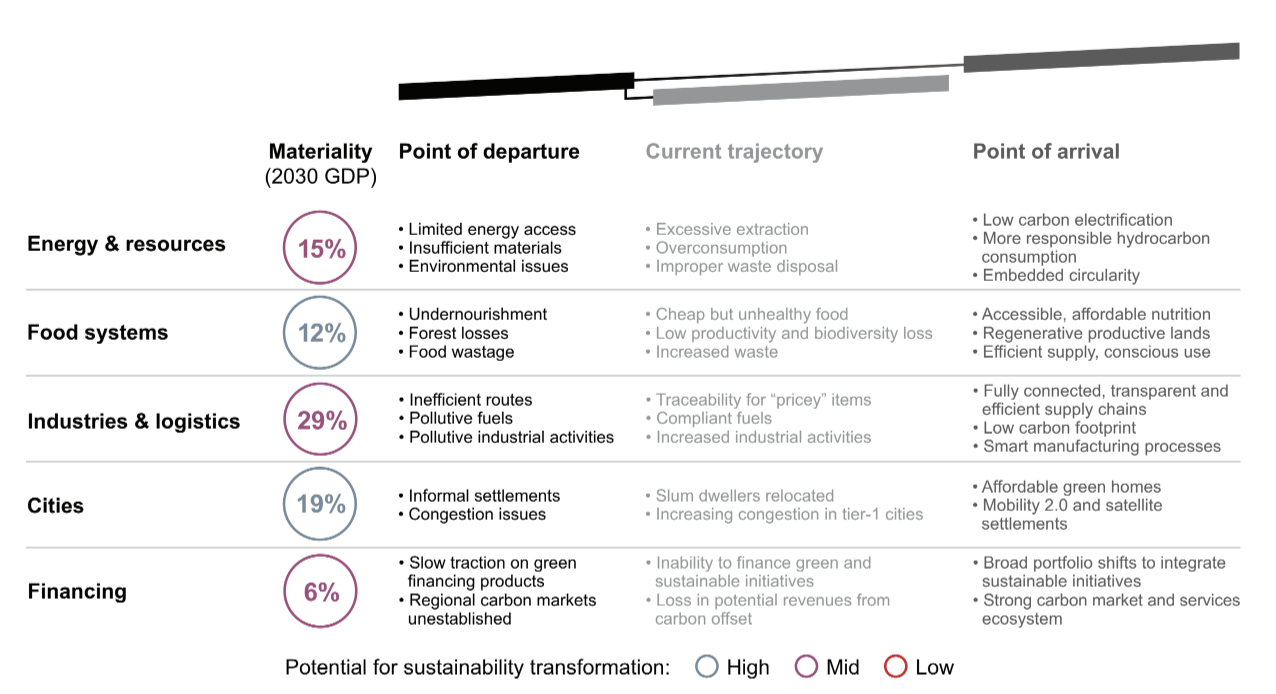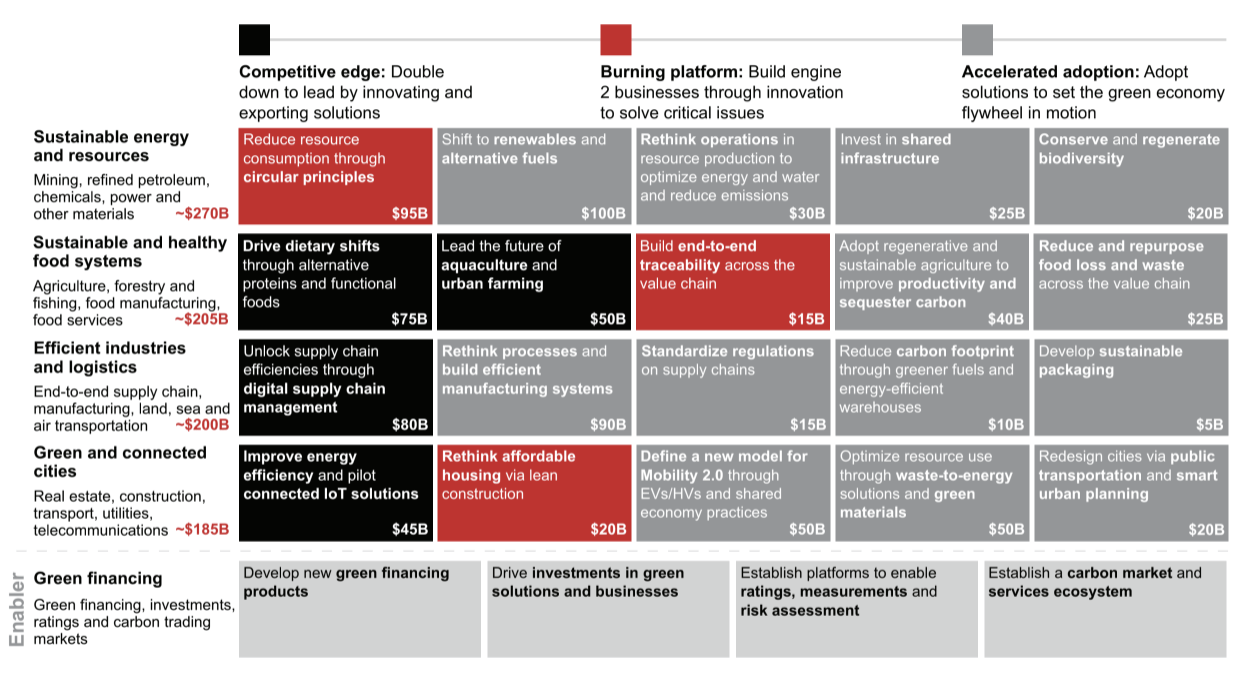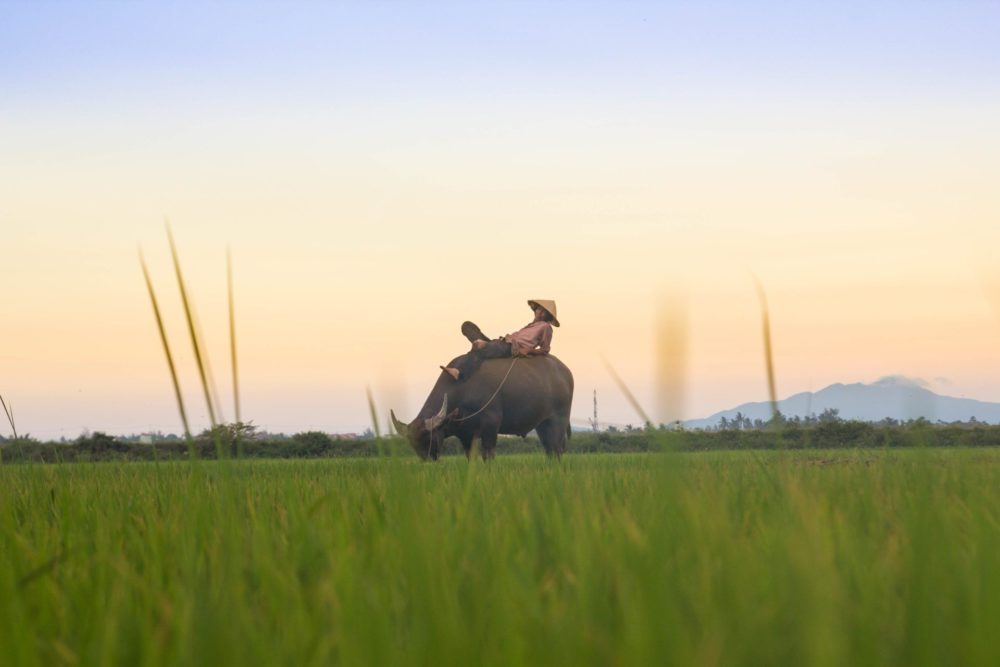Research released today by Bain & Company suggests that Southeast Asia stands to reap an annual economic boost of $205 billion if it adopts practices that lead to a healthier and more sustainable food system for the region.
Agrifood makes up just one part of a wider $1 trillion opportunity that Southeast Asian countries stand to benefit from each year by 2030 if they collectively pursue “the economic and societal potential of the green economy,” the US consulting firm said in its report.
According to Bain & Co, Southeast Asia lags other global regions in with regards to the development and implementation of ‘green’ initiatives – despite housing 20% of the world’s biodiversity.
No ASEAN member states rank among the top 40 countries when it comes to attaining the UN’s Sustainable Development Goals. At current levels, Southeast Asia is expected to account for more than half of the world’s “mismanaged” plastic waste by 2025; it also treats the least wastewater of any region, and suffers the highest deforestation rate in the tropics, the report says.
As Bain & Co points out, these factors severely threaten Southeast Asia’s global competitiveness in the near and long-term future – with importers slapping taxes on high carbon footprints, and investors and consumers alike increasingly turning to businesses that can demonstrate sustainability credentials.
But all is not lost. Governments, businesses, and investors in the region are “waking up […] due in equal parts to need and opportunity,” the report states.
Overall “Southeast Asia hasn’t really moved that much on stimulus for the green economy when compared to the Big Three [China, the EU, and the US],” said Dale Hardcastle, partner at Bain & Co, at a press conference.
“But we have an increasingly dynamic innovation economy […] Southeast Asia was a laggard in the digital economy just a few years ago but has rapidly changed to become one of the biggest in the world.”
“This shows that, even at a slower starting point today, the region can change very quickly if it chooses to do so. There is really an opportunity [for ASEAN] to leapfrog.”

Of the five industry sectors that Bain & Co highlights, the food system is seen to have the highest potential for sustainability transformation alongside ‘green’ urban development.
Taken together, the five sectors — if they meet their “green economy potential” — could create up to 6 million new jobs, add as much as 8% to the region’s GDP, and lead to the growth of around 20 Fortune 500-sized companies by 2030.
Bain & Co makes a number of recommendations as to how this potential can be realized. Looking at the agrifood sector specifically, it suggests that governments and businesses should:
-
- Encourage dietary shifts through alt-proteins and ‘functional foods,’ such as nutrient-fortified rice and reduced-sugar ingredients.
- Take a lead in the development of urban agriculture — including indoor and vertical farming — and more sustainable aquaculture practices.
- Build end-to-end traceability to improve trust across the agrifood supply chain.
- Adopt regenerative farming methods to improve productivity and sequester carbon.
- Reduce food loss and repurpose food and agricultural waste.
Altogether, Bain & Co predicts that a more sustainable and health-oriented food system could add $205 billion to Southeast Asia’s economy every year by 2030. Almost two-thirds of that will come from efficiencies and savings, with the remainder from the emergence and growth of new products and services.
The other four sectors also touch on agrifood. Bain & Co thinks that logistics could add a further $200 billion to ASEAN’s economy by digitalizing supply chains, reducing its carbon footprint, and standardizing regulations industry-wide and region-wide. Looking at another sector, finance, the report specifically calls for the establishment of a carbon credits market and an ecosystem to serve it.

Bain & Co has also announced the launch of its Global Sustainability Innovation Center (GSIC) in Singapore with the support of the city-state’s Economic Development Board (EDB.) Hardcastle and fellow partner Gerry Mattios will serve as the center’s co-directors.
The GSIC will “help companies and governments to discover and build the right amount of knowledge required to be able to start defining problems, defining the issues around sustainability,” Mattios said.
“[Another] part is around scaling. Once we have the solutions, once we know how they work – how do they go and scale it […] to be able to drive this transformation and the ecosystems we need to develop.”
Meanwhile, Bain Capital — the private equity firm spun out of Bain & Company in 1984 under the leadership of current Utah senator and former US presidential candidate Mitt Romney — has raised $800 million for its second impact fund.
Double Impact Fund II will invest to scale up companies that are making advances in environmental sustainability, health and wellness, and education.
The firm’s first Double Impact fund has backed plant-based casual restaurant chain By Chloe and sustainability-focused Sustainable Restaurant Group, as well as organic waste mulcher Living Earth.





